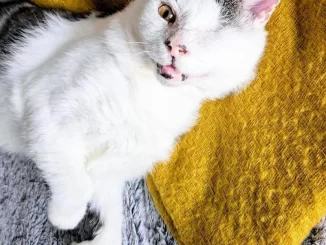
When we think of wild animals, images of predatory lions or giant elephants often come to mind. But few people know that there are animals that play an extremely important role in the ecosystem but are rarely noticed, such as vultures – nature’s “cleaners”.


- The role of vultures in the ecosystem
Vultures are often considered scavengers. However, their role is not simply to find food, but also to protect the ecosystem from the spread of pathogens. When dead animals decompose, if not handled promptly, they will create a favorable environment for harmful bacteria and viruses to develop. Vultures, with extremely efficient digestion and strong immune systems, can eat carrion without being affected by these pathogenic bacteria. Thanks to that, they prevent the spread of disease in the wild.


- Vultures clean up deer carcasses
When the deer carcass lay still on the ground, not long after, a team of vultures flew in from afar, discovered and approached this sumptuous feast. Scientists have noted that vultures have very sensitive vision and sense of smell, helping them detect carcasses from a long distance. Within just a few minutes, dozens of vultures had gathered around the deer.
The cleanup scene happened naturally and quickly. The vultures took turns picking at the flesh from the deer carcass, sharing the food that nature provided. Researchers said that in many cases, in just a few hours, a large animal carcass like a deer can be completely consumed, leaving only the bare skeleton.


- Benefits that vultures bring to humans and the environment
In addition to keeping the ecosystem clean and preventing disease, vultures also contribute significantly to maintaining the balance in nature. By eating carcasses, they help reduce the amount of greenhouse gases emitted from the natural decomposition of animal carcasses. This helps reduce pressure on the environment, especially in the context of current climate change.
Not only that, for communities living near forests or grasslands, vultures also help keep human habitats clean, avoiding pathogens from animal carcasses that can spread around.

- Challenges to the survival of vultures
Despite playing an important role in the ecosystem, the number of vultures in the world is decreasing due to many reasons such as habitat loss, pollution, and especially the uncontrolled use of herbicides and pesticides. These substances, when entering the animal’s body, can harm vultures when they eat the carcasses of poisoned animals. - Conclusion
Vultures, with their amazing natural cleaning ability, are an indispensable part of the ecosystem. Although their image is not popular with many people, these silent “cleaners” have been keeping our living environment balanced and clean. Protecting vultures is protecting the health of the planet and people.


